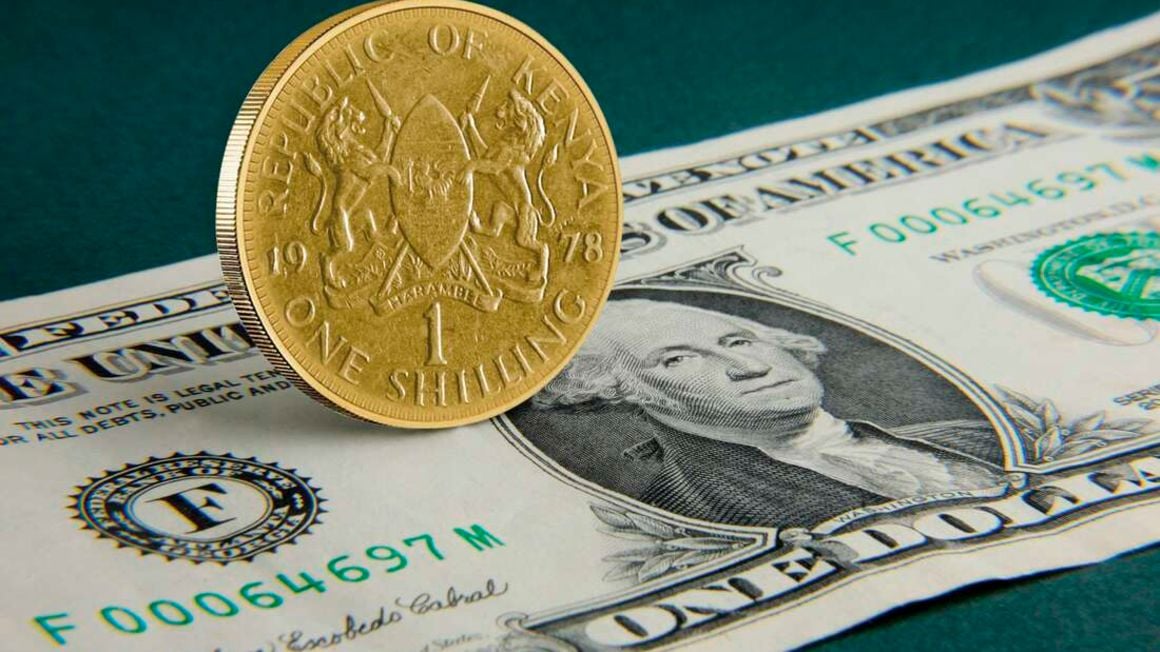
The shilling on Friday touched an all-time low of Sh120 against the dollar in intraday trading. FILE PHOTO | NMG
The shilling on Friday touched an all-time low of Sh120 against the dollar in intraday trading, raising fears it would breach the mark in coming days.
The weakened shilling signalled higher cost of imported goods and inflation.
The Central Bank of Kenya (CBK) data late afternoon showed the Kenya shilling exchanged at an average of 119.9059 on Friday, setting up the country and consumers for more expensive imports, electricity and, debt servicing distress.
The continued weakening of the local currency — by more than 5.7 percent since January — is expected to push up living costs, hurting households already subjected to high fuel and food prices.
“The rising cost, direct and indirect, of the national sovereign debt burden, will be passed on in the form of harsher government austerity,” said Deepak Dave of Nairobi-based Riverside Advisory on the possible wider implication of the economic fallout from a weaker shilling.
“Promises made in the recent election will become less likely to be filled.”
This has forced many households, especially in the low-income segment, to reduce their shopping basket in an environment where firms have frozen salaries as they recover from Covid-19 economic hardships.
The rise in the cost of essential commodities has forced workers to cut back spending on non-essential items such as beer and airtime, ultimately hurting firms like East African Breweries Limited (EABL) and Safaricom.
Kenya imports various goods including cars, petroleum, machinery, medicine and pharmaceuticals products, vegetable oil, wheat, clothing and shoes.
The depreciating shilling threatens to pile more pressure on fuel prices, which has stoked public anger.
Petroleum prices have remained high due to geopolitical risks, forcing the government to retain subsidies.
The shilling has been on the back foot in recent weeks on the combination of weak inflows and strong dollar demand across sectors, traders said.
There has been a strong dollar demand from various sectors that has outstripped lacklustre inflows, they pointed out.
The continued loss of the shilling against the dollar has seen the CBK intervene to cushion further loss.
The new round of shilling loss to the dollar coincides with conflicts between Russia and Ukraine, sustained global concerns of oil inflationary pressures and post-election jitters locally.
A fortnight ago, the Independent Electoral and Boundaries Commission (IEBC) declared Deputy President William Ruto had won the election by a slim margin, but four out of the seven election commissioners dissented, saying the tallying of results had not been transparent.
Opposition leader Raila Odinga formally challenged the results of this month’s presidential election at the country’s Supreme Court last week, setting the country for a protracted political uncertainty.
It could be weeks before a new President is sworn in, escalating a political contest that has thrown investors into uncertainty.
Many businesses want elections over before investing further, mindful of the weeks of post-election violence that followed the disputed 2007 presidential poll, which killed around 1,200 people and saw the economy take a nose-dive.
IEBC chairman Wafula Chebukati declared Dr Ruto the winner with 50.49 percent of the vote against Odinga’s 48.5 percent.
Mr Odinga has urged the Supreme Court to declare him the President-elect, claiming he won the August 9 General Election.
The candidate says he was robbed of victory after the IEBC failed to factor in votes from 27 constituencies that were not declared and verified before Dr Ruto was declared the victor on August 15.
bnjoroge@ke.nationmedia.com

No comments:
Post a Comment